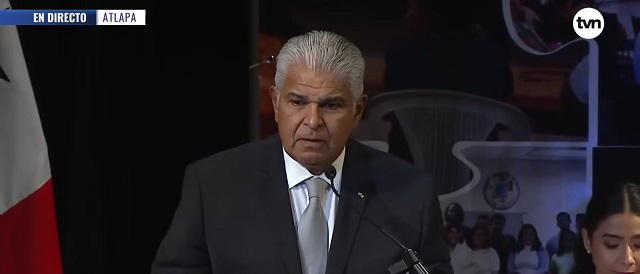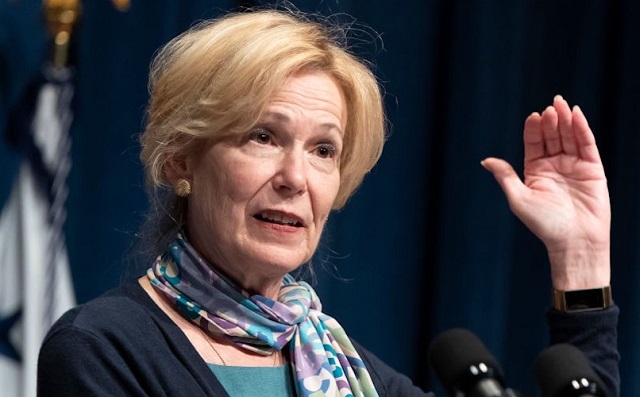Media
Most Canadians oppose internet censorship, federal report finds

From LifeSiteNews
” even those who voiced concern over potentially ‘harmful’ content on Facebook, Twitter, LinkedIn, TikTok, YouTube and Snapchat held that it ‘was the responsibility of individuals’ and not government to determine what Canadians can and cannot view. “
Most Canadians want the Trudeau government to keep its hands off access to the internet, according to a federal report.
According to information published January 3 by Blacklock’s Reporter, an in-house Privy Council report titled Continuous Qualitative Data Collection Of Canadians’ Views has found that most Canadians believe the federal government should not introduce legislation that would censor internet content.
“Discussing actions which could be taken to mitigate online misinformation and disinformation, participants stressed the role of individual responsibility,” federal government researchers wrote in the report.
According to the report, even those who voiced concern over potentially harmful content on Facebook, Twitter, LinkedIn, TikTok, YouTube and Snapchat held that it “was the responsibility of individuals” and not government to determine what Canadians can and cannot view.
The research was contracted out to Strategic Counsel, which gathered information from focus groups in Saskatchewan, Manitoba, Ontario, Québec and Atlantic Canada.
“A number were of the view it was of critical importance for Canadians to be able to leave comments and have their voices heard regarding initiatives and policies important to them,” the report stated.
According to the research, Canadians were unsure that legislation to censor internet activity was necessary, or even a good idea, explaining that they could “filter out hateful content” without the government’s intervention.
“While most believed harmful content online represented a growing concern few felt it to be a major issue at present,” the report said. “Several were of the view that individuals were typically able to avoid harmful content by blocking it or not utilizing platforms on which it was present.”
“While a few felt actions should be taken to limit the reach or prohibit harmful online content several were concerned these efforts might have the unintended consequence of impeding what they viewed as the rights of individuals to freely express themselves online,” it continued.
“Participants were asked if they were concerned about the spread of misinformation and disinformation,” the research added. “Though all participants reported feeling some degree of concern some also expressed reservations about the potential for censorship in any attempt by the federal government to prevent the proliferation of false information online.”
The research comes as Canadians are facing increased internet censorship thanks to the Liberal government under the leadership of Prime Minister Justin Trudeau.
This past June, Trudeau’s internet censorship law, Bill C-18, the Online News Act, was passed by the Senate. This law mandates that Big Tech companies pay to publish Canadian content on their platforms.
As a result, Meta, the parent company of Facebook and Instagram, blocked all access to news content in Canada, while Google agreed to pay Canadian legacy media $100 million under the new legislation.
Critics of Trudeau’s recent laws, such as tech mogul Elon Musk, have commented that the legislation shows that “Trudeau is trying to crush free speech in Canada.”
Musk made the comments after the nation’s telecommunications regulator announced that due to new powers granted to it via the Online Streaming Act, certain podcasters will now have to “register” with the government.
Just last week, the Canadian Radio-Television and Telecommunications Commission (CRTC), Canada’s official broadcast regulator, announced it might soon be producing draft rules for a pre-election “code of conduct” for newsrooms, which includes print and online journalists.
The “code of conduct” can be legally enforced thanks to a little known clause in the Online News Act. Clause, 27.1.b.iv says newsrooms that want Google money must demonstrate full compliance with a “code of ethics.” This “code” was not defined, however, and Canada has no such national code of newsroom ethics.
Media
CBC tries to hide senior executive bonuses

From the Canadian Taxpayers Federation
Author: Franco Terrazzano
The Canadian Taxpayers Federation filed a complaint with the Office of the Information Commissioner after the CBC refused to disclose 2023 bonuses for its eight senior executives until days after its President Catherine Tait is scheduled to appear at a parliamentary committee.
“This reeks of the CBC trying to conceal its senior executive bonuses so Tait doesn’t have to talk about it when she testifies at a parliamentary committee,” said Franco Terrazzano, CTF Federal Director. “The CBC is required to follow access to information laws and this nonsense delay is a blatant breach of the law.
“If Tait and her executives think they deserve their bonuses, they should be open and honest about it with taxpayers.”
The CBC proactively discloses certain information related to executive compensation in its annual reports. However, because the annual report lumps together salary and other benefits, Canadians don’t know how much the CBC’s eight senior executives take in bonuses.
Other Crown corporations have provided the CTF with access-to-information records detailing senior executive bonuses. For example, the Canada Mortgage and Housing Corporation paid out $831,000 in bonuses to its 10 senior executives in 2023. The Bank of Canada paid out $3.5 million in bonuses to its executives in 2022.
On March 11, 2024, the CTF filed an access-to-information request seeking details on the compensation paid out to CBC’s eight senior executives in 2023, including bonuses.
On April 9, 2024, the CBC issued a 30-day extension notice.
The new deadline for the CBC to release details on senior executive bonuses is May 10, 2024, just days after Tait is scheduled to appear at committee on May 7, 2024.
In response to a previous access-to-information request, the CBC released to the CTF records showing it paid out $15 million in bonuses to 1,143 non-union staff in 2023. The CBC did not issue an extension notice on that request.
“Tait is wrong to hide the cost of bonuses for CBC’s eight senior executives from the Canadians who pay their cheques,” said Terrazzano. “Tait must do the right thing and confirm to the parliamentary committee that she will cancel CBC bonuses.”
The CTF filed the complaint with the Office of the Information Commissioner on May 3, 2024, regarding the CBC’s delay in releasing documents regarding senior executive bonuses.
“The CBC is legally obligated to release the bonus documents days after the parliamentary committee hearing so obviously Tait has the details readily at hand,” said Terrazzano. “If MPs ask for those details, she needs to answer.
“And just to be clear, the CTF is fine with the CBC releasing this information at committee or anywhere else.”
Censorship Industrial Complex
Elon Musk skewers Trudeau gov’t Online Harms bill as ‘insane’ for targeting speech retroactively

From LifeSiteNews
It literally spits in the face of all Western legal traditions, especially the one about only being punished if you infringed on a law that was valid at the time of committing a crime
Billionaire tech mogul Elon Musk remarked that it is “insane” that the Trudeau government’s proposed “Online Harms” bill would target internet speech retroactively if it becomes law.
“This sounds insane if accurate!” wrote Musk on Tuesday, in reply to an X (formerly Twitter) user named Camus who detailed that Prime Minister Justin Trudeau’s government’s Bill C-63, the Online Harms Act, could see Canadians fined or even jailed for things posted on the internet prior to the bill becoming law.
Camus noted how Bill C-63 could give police “the power to retroactively search the Internet for ‘hate speech’ violations and arrest offenders, even if the offence occurred before the law existed.”
A brief time later, X’s “CommunityNotes” program – a system in which users collectively “fact-check” information shared on the site –confirmed what Camus had written was accurate, quoting a section of the bill’s text.
“Part 3 of Bill C-63, which is still at first reading stage and is not yet law, adds to the Canadian Human Rights Act: ‘a person communicates or causes to be communicated hate speech so long as the hate speech remains public and the person can remove or block access to it,’” CommunityNotes wrote.
Camus observed about Bill C-63 that the “Trudeau regime has introduced an Orwellian new law.”
“This new bill is aimed at safeguarding the masses from so-called ‘hate speech,’” he wrote. “The real shocker in this bill is the alarming retroactive aspect. Essentially, whatever you’ve said in the past can now be weaponized against you by today’s draconian standards.”
Camus observed how historian Dr. Muriel Blaive has weighed in on “this draconian law,” labeling it outright “mad.”
“She points out how it literally spits in the face of all Western legal traditions, especially the one about only being punished if you infringed on a law that was valid at the time of committing a crime,” wrote Camus.
Bill C-63 was introduced by Liberal Minster Attorney General Arif Virani on February 26 and was immediately blasted by constitutional experts as troublesome.
The bill, if passed, will modify existing laws, amend the Criminal Code as well as the Canadian Human Rights Act, in what the Liberals claim will target certain cases of internet content removal, notably those involving child sexual abuse and pornography.
However, the bill also seeks to police “hate” speech online with broad definitions, severe penalties, and dubious tactics.
Trudeau’s new bill a ‘terrible attack’ on speech, Musk warns
On Tuesday, well-known Canadian psychologist Jordan Peterson replied to Musk by saying about Bill C-63, “It’s much much worse than you have been informed: plans to shackle Canadians electronically if accusers fear a ‘hate crime’ might (might) be committed.”
“It’s the most Orwellian piece of legislation ever promoted in the West.”
Musk replied to Peterson by saying Bill C-63 is “[a] terrible attack on the rights of Canadians to speak freely!”
Other notable X users, such as Canadian lawyer David Freiheit, who is known online as Viva Frei, confirmed Musk’s concern that Bill C-63 could go after X users from posts/tweets made long ago.
“It’s pretty close to accurate, Elon. If someone has the ability to delete a ‘hate speech’ tweet / post and does not, and someone else retweets that tweet, it would qualify as ‘publication’ under the law and be sanctionable,” he wrote.
Details of the new legislation to regulate the internet show the bill could lead to more people jailed for life for “hate crimes” or fined $50,000 and jailed for posts that the government defines as “hate speech” based on gender, race, or other categories.
The bill also calls for the creation of a digital safety commission, a digital safety ombudsperson, and a digital safety office.
The Justice Centre for Constitutional Freedoms (JCCF) has said Bill C-63 is “the most serious threat to free expression in Canada in generations. This terrible federal legislation, Bill C -63, would empower the Canadian Human Rights Commission to prosecute Canadians over non-criminal hate speech.”
In a recent podcast, Peterson and Queen’s University law professor Bruce Pardy warned of the “totalitarian” impact Trudeau’s new Online Harms bill will have on Canada.
Peterson observed that the Trudeau government is effectively “establishing an entirely new bureaucracy” with an “unspecified range of power with non-specific purview that purports to protect children from online exploitation” but has the possibility of turning itself into an internet “policing state.”
-

 COVID-192 days ago
COVID-192 days agoThe New York Times Admits Injuries from COVID-19 Shots
-

 National1 day ago
National1 day agoDespite claims of 215 ‘unmarked graves,’ no bodies have been found at Canadian residential school
-

 Brownstone Institute18 hours ago
Brownstone Institute18 hours agoThe WHO’s Proposed Pandemic Agreements Worsen Public Health
-

 Energy2 days ago
Energy2 days agoFederal government continues to reject golden opportunities to export LNG
-

 Energy2 days ago
Energy2 days agoBuckle Up for Summer Blackouts: Wind Is Already Failing Texas in Spring
-

 illegal immigration1 day ago
illegal immigration1 day agoPanama’s Incoming President Wants To Shut Down His Country’s Most Treacherous Route For Migrants — But Will It Work?
-

 conflict2 days ago
conflict2 days ago‘It Makes No Sense’: Experts Puzzled By Biden Admin’s Claim That Rafah Invasion Wouldn’t Help Israel Defeat Hamas
-

 COVID-191 day ago
COVID-191 day agoFormer COVID coordinator Deborah Birx now admits jabs could have injured ‘thousands’





